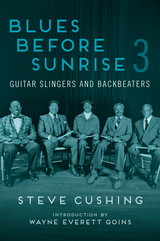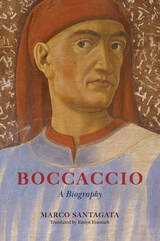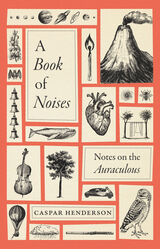
In the wake of the successful cloning of animals and the promises—or fears—of stem cell research, new discoveries in science and medicine need more than ever to be accompanied by careful moral reflection. Contending that concern over the ethical dimensions of these and other like issues are no longer just in the domain of those involved in medical practice, the third edition of Ethics of Health Care claims these are vital topics that should matter deeply to all citizens.
While stressing the Catholic tradition in health care ethics, Ethics of Health Care is ecumenical, incorporating a broader Christian tradition as well as humanistic approaches, and takes as common ground for mutual understanding the Universal Declaration of Human Rights of the United Nations. This new third edition is a response to the many developments in theology and the startlingly rapid changes in the arenas of medicine and health care over the past decade, from the dominance of managed care to increased surgery on an "outpatient" basis; from hospice care for the dying to the increasing use of drugs in the treatment of mental illness.
Revised and thoroughly up-to-date, this third edition continues with its valuable teaching aids, including case studies, study questions, chapter summaries, a bibliography, and complete index.
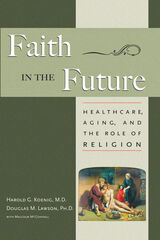
After an interview in Newsweek about his book Spirituality in Patient Care and his research in religion and health, Dr. Harold Koenig became the international voice on spirituality, health, and aging. In this book, Faith in the Future, he is joined by two other experts on aging and human development. They present a compelling look at one of the most severe issues in today’s society: health care in America.
How will we provide quality healthcare to older adults needing it during the next thirty to fifty years? Who will provide this care? How will it be funded? How can we establish systems of care now to be in place as demographic and health-related economic pressures mount?
Alongside the sobering reality of our country’s challenges, there are reasons for optimism. Innovative programs created and maintained by volunteers and religious congregations are emerging as pivotal factors in meeting healthcare needs. Summarizing decades of scientific research and providing numerous inspirational examples and role models, the authors present practical steps that individuals and institutions may emulate for putting faith into action.
<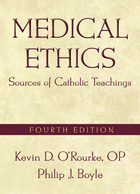
In a single convenient resource, this revised and updated edition of a classic text organizes and presents clearly the documents of the Catholic Church pertaining to medical ethics. Introductory chapters provide the context for interpreting the Church's teachings and theological values, guiding the reader in how to apply the teachings to particular ethical dilemmas and helping the reader to understand the role of conscience within the Catholic tradition.
The teaching of the Church in regard to health care ethics is pertinent not only for health care professionals and students, but for all who are concerned about the common good of society. Medical Ethics examines specific teachings of the Church on over seventy issues in clinical and research ethics, including abortion, AIDS, artificial insemination, assisted suicide, cloning, contraception, euthanasia, gene therapy, health care reform, organ donation and transplantation, organizational ethics, stem cells, surrogate motherhood, and withholding and withdrawing life support.
O'Rourke and Boyle bring this fourth edition up to the present day by incorporating recent papal documents regarding the social aspects of health care, assent to Church teaching, and the 2008 papal instruction Dignitas personae, an extremely influential document that illuminates such controversial dilemmas as prenatal adoption, frozen embryos, and genetic diagnosis.

In a single convenient resource, this book organizes and presents clearly the documents of the Catholic church pertaining to medical ethics. Introductory chapters provide the context for interpreting the Church's teachings and guide the reader in applying the teachings to particular ethical quandaries.
This third edition has been updated to incorporate the statements issued since the preparation of the second edition. The authors have revised the introductory chapters to include ideas from the papal encyclical Splendor Veritatis and "Instruction of the Ecclesial Vocation of the Theologian," published by the Vatican Congregation for the Doctrine of the Faith, concerning the various levels of the teachings of the Church. Other new statements included in this edition are relevant topics from the papal encyclical Evangelium Vitae (abortion, euthanasia, amniocentesis, suicide and withdrawing life support); the Vatican Congregation of Doctrine and Faith on uterine isolation; the U.S. bishops on the care of anencephalic infants, genetic testing, and cloning; and the Pennsylvania Catholic Conference on the treatment for rape in Catholic hospitals.
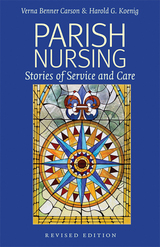
The engaging stories in Parish Nursing provide accessible and enjoyable accounts of real parish nurses, both paid and volunteer, who attend to the needs of their congregations in a variety of ways—from home, hospice, and hospital visits to community outreach. This revised edition gathers their stories of hearing and heeding God’s call, of their faith that they are doing the “right thing,” of their joys, sorrows, and challenges, and of their quiet dedication as they offer their time and talents to meet the needs of others.
By offering inspiration and encouragement, along with a healthy dose of updated practical advice, this collection will make parish nursing theory come to life. These stories will honor practicing parish nurses, will guide the way for anyone contemplating parish nursing as a career, and will challenge church members and leaders to examine the role that their congregations play in health ministry—especially in meeting the long-term care needs of an aging population.
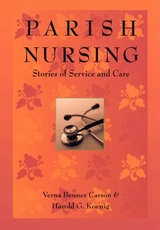
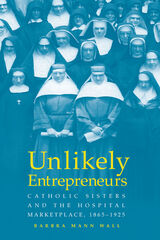
In Unlikely Entrepreneurs, Barbra Mann Wall looks at the development of religious hospitals in the late nineteenth and early twentieth centuries and the entrepreneurial influence Catholic sisters held in this process. When immigrant nuns came to the United States in the late nineteenth century, they encountered a market economy that structured the way they developed their hospitals. Sisters enthusiastically engaged in the market as entrepreneurs, but they used a set of tools and understanding that were counter to the market. Their entrepreneurship was not to expand earnings but rather to advance Catholic spirituality.
Wall places the development of Catholic hospital systems (located in Illinois, Indiana, Minnesota, Texas, and Utah) owned and operated by Catholic sisters within the larger social, economic, and medical history of the time. In the modern health care climate, with the influences of corporations, federal laws, spiraling costs, managed care, and medical practices that rely less on human judgments and more on technological innovations, the “modern” hospital reflects a dim memory of the past. This book will inform future debates on who will provide health care as the sisters depart, how costs will be met, who will receive care, and who will be denied access to health services.
READERS
Browse our collection.
PUBLISHERS
See BiblioVault's publisher services.
STUDENT SERVICES
Files for college accessibility offices.
UChicago Accessibility Resources
home | accessibility | search | about | contact us
BiblioVault ® 2001 - 2025
The University of Chicago Press




